‘To heal the sick’, wrote Giovanni Papini,
‘medicines are not enough, you need love,
That is to say the high temperature of the soul.
Fever against fever, spirit against flesh.
that is what St. Camillus did’.
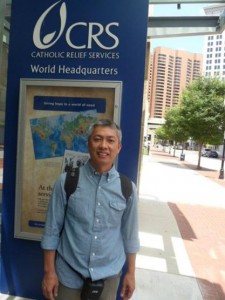 This afternoon – Saturday 18 August, our friend and religious brother Fr. Aris Miranda – the general consultor for ministry and the coordinator of the Camillian Task Force – left for Makeni in Sierra Leone, a land especially tested by the scourge of Ebola where men and women – already severely tested by an endemic poverty – are now tormented in body, health, spirit and the most total poverty by Ebola as well.
This afternoon – Saturday 18 August, our friend and religious brother Fr. Aris Miranda – the general consultor for ministry and the coordinator of the Camillian Task Force – left for Makeni in Sierra Leone, a land especially tested by the scourge of Ebola where men and women – already severely tested by an endemic poverty – are now tormented in body, health, spirit and the most total poverty by Ebola as well.
Fr. Aris goes to join an array that is already great in number and which is made up of men and women who have already responded to the appeal of the ‘unfortunate’ (Lk 10:25-7), and as often happens in these cases they are silent, little concerned about the spotlights and approval ratings, they ‘do not provoke to exist but exist to provoke’; men and women who have had the boldness to see and not to pass by, to see and to stop, and to really offer a ‘little’ in the face of the immensity of needs that once again Ebola has highlighted exist in the heart of Africa. A ‘little’ which according to the logic of the gospel is the only real statistic of the Advent of the Kingdom of God (small is the seed thrown in the ground, insignificant the yeast put in the dough, weak the light which faces the wall of shadows), and yet a ‘little’ that has the size and the efficacy of a glass of water given to a thirsty man!
Fr. Aris will reach the local community of Makeni in Sierra Leone – in particular in collaboration with Fr. Natale Paganelli, the Apostolic Administrator of that ecclesial community – strengthened by the intelligent, determined and motivated support of a larger and better equipped group of religious brothers, volunteers and health-care professional who over the next few weeks, starting from the same observations, inquiries, meetings and conversations that Fr. Aris has had over recent days, will be able to organise action that it is even better organised and directed.
While writing these few lines of grateful salutations, of encouragement and of esteem for Fr. Aris, there came to mind a famous page from ‘Lettere dal deserto’ by Carlo Carretto, in which is offered the meaning and above all else the style of authentic evangelical dedication to one’s neighbour, a dedication made up of immersion in the human and of incarnation in the putrid wounds of history.
‘This being poor, this dressing ‘like them’, and this accepting their language and their habits, suddenly brought the wall down and allowed dialogue, authentic dialogue – the dialogue of equals.
I went by camel along the track from Geriville to El Abiod and I was heading for a desert area for a few days of solitude.
At a certain point on the track I came across a work site.
I went along the line of manual labourers who were spread out along the track, I answered their greetings and I offered them my ‘gherba’ of thirty litres of water for their thirst.
At a certain point, between the mouths that drew near to the neck of the ‘gherba’ to drink, I saw unfold a smile that I will never forget.
Poor, in rags, sweaty, dirty – it was Brother Paul, a little brother who had chosen that site to live his ordeal and to mix with that dough as evangelical yeast. I knew Brother Paul well because we had done our novitiates together. A Parisian engineer, he was working in one those committees destined to produce the atomic bomb of Reganne when he heard the call of the Lord. He dropped everything and became a little brother.
Now he was there and nobody knew that he was an engineer: he was a poor man like everybody else. I remember his mother when she came on the occasion of his vows for the novitiate.
‘Help me Brother Carlo to understand the vocation of my son. I made him an engineer, you have made him a manual labourer. But why? Or at least use my son for what he is worth! No: he has to be a manual worker. But tell me, would not more decorum, more efficacy, be gained by the Church if he were made to act like an intellectual?’
‘Madam, I replied, there are things that one cannot understand with intelligence and common sense. Only faith can illuminate us. Why did Jesus want to be poor? Why did he want to conceal his divinity and his power and live amongst us as one of the least? Why, Madam, the defeat of the cross, the scandal of Calvary, the ignominy of death for he who was Life? No, Madam, the Church does not need one more engineer; she needs one more grain of corn to die in her furrows. And the more this grain is turgid with life and sapid with the sky and the sun, the more it will be appreciated by the earth which has to receive it for the future harvest’.
Naturally we also suggested to Fr. Aris ‘to think over the matter well before leaving’, ‘to be prudent’, alarmed by the news – always of a very Western kind – that the press has exploded in its reports and by the collective neurosis that such news runs the risk of generating. Perhaps more or less unconsciously we wanted to tell him to stay at home. And when thinking about this from the bottom of my heart an extraordinary passage from our Camillian history emerged: ‘Stop! Where are you going! There is the plague in Milan!’. It was in this way that some peasants of the countryside of Pavia, in the winter of 1594, tried to stop a group of men who were riding towards the Duchy of Milan. After learning that plague had broken out, Fr. Camillus had brought together half a dozen of his companions at Genoas and had left swiftly to bring help. ‘That is why we are going there!’, he then answered, without slowing down.
Our task is to cultivate a feeling of esteem and friendship, a spirit of prayer, so that God supports and sustains the good initiatives of our friend and why not…also ‘take out two silver pieces’ from our wallet (Lk 10:35), as the Good Samaritan did, perhaps contributing to the ‘Friends of Ebola’ fund!
Fr. Gianfranco Lunardon








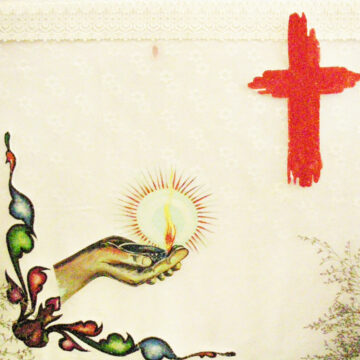
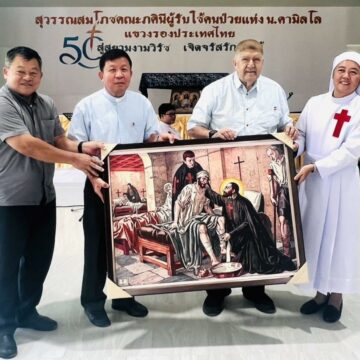
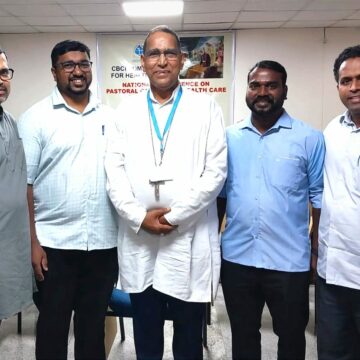
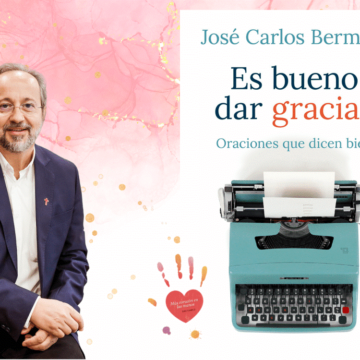

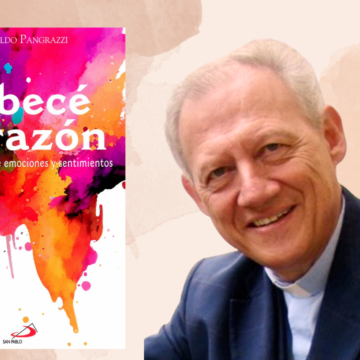
Camillians on Facebook
Camillians on Twitter
Camillians on Instagram